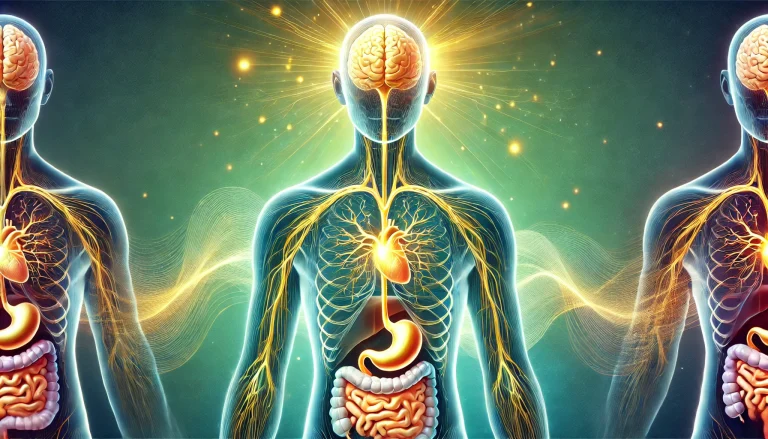“Simplicity is the ultimate sophistication.” – Leonardo da Vinci
Introduction
We live in an age of endless food options—fusion cuisines, exotic ingredients, winter produce available in summer, and processed snacks that flood our senses with variety. While this abundance seems exciting, it can also overstimulate our body’s systems, which are delicate. Each ingredient, flavor, and texture adds layers of information that the body-brain system must process.
This raises an essential question: How does the complexity of what we eat impact our body’s ability to stay balanced?
Simplifying our food choices helps ease this informational overwhelm, allowing better physical, emotional, and mental alignment. By choosing simplicity, we create space for the body to heal and harmonize with natural rhythms, allowing it to connect with Earth, its Mother.
The Body-Brain as a System of Information
The body and brain operate as an interconnected system of information exchange. The gut, often called the “second brain,” plays a pivotal role in processing the information derived from food.
The Body-Brain Connection
The gut-brain axis is a two-way communication network linking the emotional and cognitive centers of the brain with the digestive system.
- The gut microbiome, a vast ecosystem of microorganisms, processes food and sends signals to the brain 24/7.
- This dynamic affects not only digestion but also mood, memory, and decision-making.
When our food habits align with the needs of the gut microbiome, this communication flows effortlessly, supporting emotional resilience and mental clarity.
Food as Chains of Information
Food is not just fuel; it is a carrier of molecular data.
- Every mouthful contains chains of information the body decodes.
- Whole, unprocessed foods provide “clean” data, while highly processed meals disrupt this system, overloading the body-brain network.
By simplifying our meals, we give the body clarity and reduce stress on its processing systems.
Overloading the System: Food Complexity and Its Consequences
Digestive Overload
Overly complex meals challenge the digestive system.
- The gut microbiome thrives on stability, and diets with too many diverse or conflicting ingredients disrupt this balance.
- This imbalance can lead to bloating, indigestion, brain fog and fatigue, straining both the body and mind.
Simplified meals provide the gut microbiome with the stability it needs to function optimally.
Nervous System and Limbic System Overwhelm
Food is not just physical; it is sensory and emotional.
- Overstimulation from rich flavors, textures, and visual presentations can overload the limbic system, the part of the brain that governs emotions and memory.
- Emotional triggers like stress eating compound this overstimulation, leading to imbalances and cravings.
Simplifying meals reduces sensory overload, helping the nervous system regain balance.
Misalignment with Nature and Cultural Inheritance
Modern food choices often disconnect us from nature and our cultural heritage.
- Consuming foods out of season or unfamiliar to our ancestral diets increases stress on the body.
- Traditional diets, rooted in local and seasonal produce, align with the body’s natural rhythms, promoting better digestion and overall health.
The Importance of Food Simplicity
Relieving Stress on the Gut
Simplified meals are easier to digest and reduce inflammation.
- For instance, mono-meals (single-dish meals) like kitchari or soups allow the gut to stabilize and absorb nutrients more effectively.
Synchronizing with Natural Rhythms
Seasonal and local foods help align the body with nature’s cycles.
- Eating warm, grounding foods in winter and light, cooling foods in summer supports the body’s changing needs.
- Ayurvedic principles also emphasize eating in harmony with your dosha (constitution) and the seasons to maintain balance.
Honoring the Body’s Feedback System
Simplifying meals enhances the body’s natural feedback loop.
- By reducing the complexity of our diets, we can better tune into signals of hunger, satiety, and cravings, cultivating a deeper connection with our body’s needs.
Practical Steps to Simplify Your Eating
Start with Seasonal and Local Foods
- Shop at local farmers’ markets to select fresh, in-season produce.
- For example, enjoy root vegetables like carrots and sweet potatoes in winter for grounding energy.
Reduce Ingredient Complexity
- Focus on meals with just a few high-quality ingredients.
- A simple stew with lentils, turmeric, and greens is both nutritious and easy to digest.
Experiment with Mono-Meals
- Try single-dish meals to give your gut a rest.
- Examples: Steamed vegetables with ghee or a bowl of rice and lentils.
Practice Mindful Eating
- Avoid distractions like phones or TVs during meals.
- Chew slowly and savor each bite, fully engaging with the sensory experience of eating.
Simplicity as a Gateway to Balance
Simplifying food choices is a profound act of self-care. By reducing the informational burden on our body-brain system, we pave the way for balance, healing, and alignment.
Start today: Try simplifying your next meal and notice how your body responds. Share your experiences or explore programs designed to guide you toward mindful and intentional eating.
Research and Further Reading
Books
- The Mind-Gut Connection by Emeran Mayer, MD
Articles
- Interactions between the microbiota, immune and nervous systems in health and disease
- Gut Health: The Cornerstone of Emotional Healing and Wellness
- Seasonal Eating for Digestive Health
By simplifying what we eat, we simplify how we live, and foster a harmonious relationship between body, mind, spirit and Earth.





